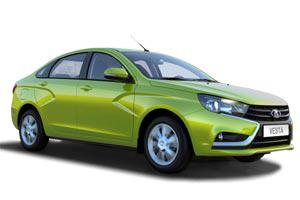Wed, 15 May 2024
Compare Opel Astra 1.0 turbo and Hyundai i30 (2017-2020) 1.6 CRDi (95 PS)
Technical specifications
| Clear list | Opel Astra | Hyundai i30 (2017-2020) |
| Totals | Opel Astra 1.0 turbo × | Hyundai i30 (2017-2020) 1.6 CRDi (95 PS) × |
| Mark | Opel | Hyundai |
| Model | Astra 1.0 turbo | i30 (2017-2020) 1.6 CRDi (95 PS) |
| Year | 2015 | 2017-2020 |
| Number of doors/seats | 5/5 | 5/5 |
| Body type | Hatch | Hatch |
| Unladen Weight | 1263 | 1411 |
| Gross Weight Limit | 1790 | 1860 |
| Top Speed, km/h | 200 (200) | 186 |
| Acceleration 0-100 kph | 11.2 (12.7) | 12.2 |
| Minimum turning radius, m | 5.6 | 5.3 |
| Cargo Volume, min/max, L | 370/1210 | 395/1301 |
| Dimensions specifications, mm | Opel Astra 1.0 turbo × | Hyundai i30 (2017-2020) 1.6 CRDi (95 PS) × |
| Length | 4370 | 4340 |
| Width | 1809 | 1795 |
| Height | 1485 | 1455 |
| Wheelbase | 2662 | 2650 |
| Front/rear Track | 1548/1565 | - |
| Ground clearance | - | 140 |
| Engine specifications | Opel Astra 1.0 turbo × | Hyundai i30 (2017-2020) 1.6 CRDi (95 PS) × |
| Type | Gasoline Direct Injection, turbocharging | turbo diesel Common Rail |
| Displacement, cm3 | 999 | 1582 |
| Compression ratio | 10.5 | 16 |
| Number and arrangement of cylinders | 3 cylinders, in-line | 4 cylinders, in-line |
| The diameter of the cylinder x stroke, mm | 74x77.4 | 77.2x84.5 |
| Number of valves | 12 | 16 |
| Power, hp/rpm | 105/5500 | 95/4000 |
| Max torque, Nm/RPM | 170/1800-4250 | 280/1500-2000 |
| Transmission specifications | Opel Astra 1.0 turbo × | Hyundai i30 (2017-2020) 1.6 CRDi (95 PS) × |
| Gearbox | 5-speed manual / 5-speed tiptronic | 6-speed manual |
| Drive Type | Front wheel drive | Front wheel drive |
| Suspension specifications | Opel Astra 1.0 turbo × | Hyundai i30 (2017-2020) 1.6 CRDi (95 PS) × |
| Front | MacPherson strut | MacPherson strut |
| Rear | Dependent suspensions | multi-link suspensions |
| Tire Size | 195/65 R15 | 195/65 R15 |
| Disk | 5x110 ET39 d65.1
| 5x114.3 ET47 d67.1
|
| Brakes specifications | Opel Astra 1.0 turbo × | Hyundai i30 (2017-2020) 1.6 CRDi (95 PS) × |
| Front | Ventilated discs | Ventilated discs |
| Rear | Discs | Discs |
| Fuel consumption specifications, L/100 km | Opel Astra 1.0 turbo × | Hyundai i30 (2017-2020) 1.6 CRDi (95 PS) × |
| City | 5.1 (5.1) | - |
| Highway | 3.9 (3.8) | - |
| Combined | 4.4 (4.3) | 3.8 |
| Fuel | 95 | Diesel |
| Tank, L | 48 | 50 |
| Clear list | Opel Astra | Hyundai i30 (2017-2020) |














